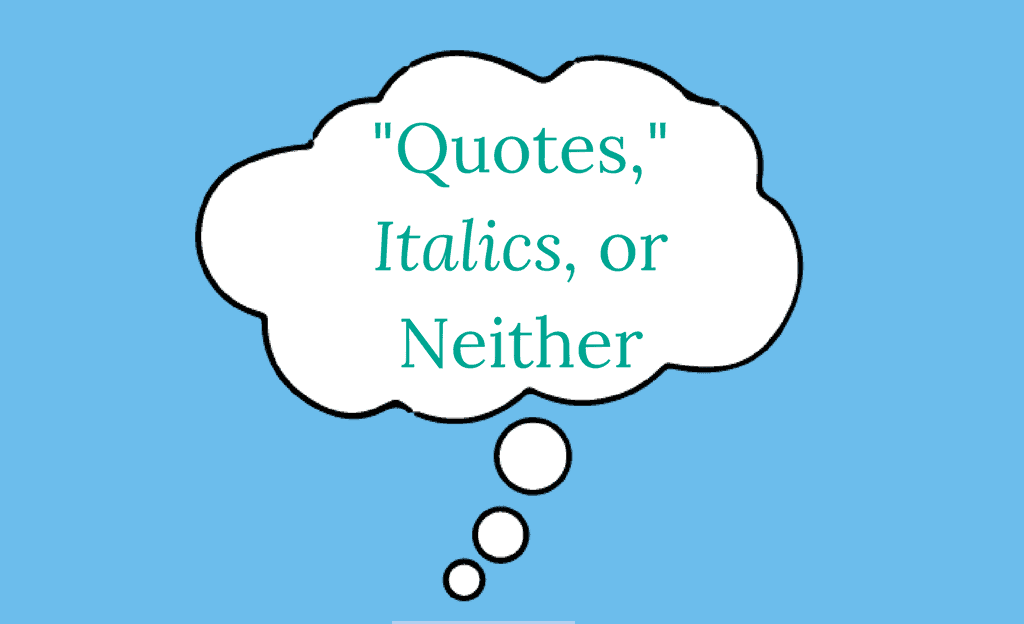4 Common Failures in Story Cause/Effect

Causality governs story events. You want your story to feel authentic, believable, and seamless. You don’t want any of the events or reactions within the story to draw attention to themselves. They must be earned. This article examines common failures to earn story developments.
Formatting Character Thoughts

Is it better to format character thoughts with quote marks or italics? I say neither. No special formatting is necessary to signify character thinking. You just need some solid narration.
Create Sentiment; Avoid Sentimentality

Flannery O’Connor says that sentimentality is a “distortion of sentiment.” That distortion can occur in one of two ways. Learn about those distortions and then avoid them through the 7 remedies presented here.
How to Create Story Momentum

A story with momentum makes me want to know what’s going to happen next, and makes me care about the characters, objectives, conflicts, and action.
10 Lessons from “Cat Person” on Character Interiority

Kristen Roupenian’s “Cat Person” handles character interiority masterfully. Here are 10 tips we can glean from the story.
Author, Narrator, Character

There is a distinction between author, narrator, and character.
The author creates the story.
The narrator tells the story.
The character lives the story.
These are three distinct entities, which exist on different planes.
12 Ways to Be an Invisible Writer

Once the author becomes visible, the enchantment of the story dissolves. The author is the creator of a story, but the author should never be a part of the story. The author is the man behind the curtain. Reveal the man behind the curtain and the Wizard of Oz narrative dies. What sorts of things reveal the author? Here are 12.
Juggle External Action and Interiority

External refers to what’s happening outside of characters’ minds. It’s the stuff that an observer could see. You could film it pretty easily. Internal refers to what’s going on inside a character’s head: feelings and thoughts. Prose storytelling regularly informs us of characters’ interiority in ways that, say, a screenplay cannot.
